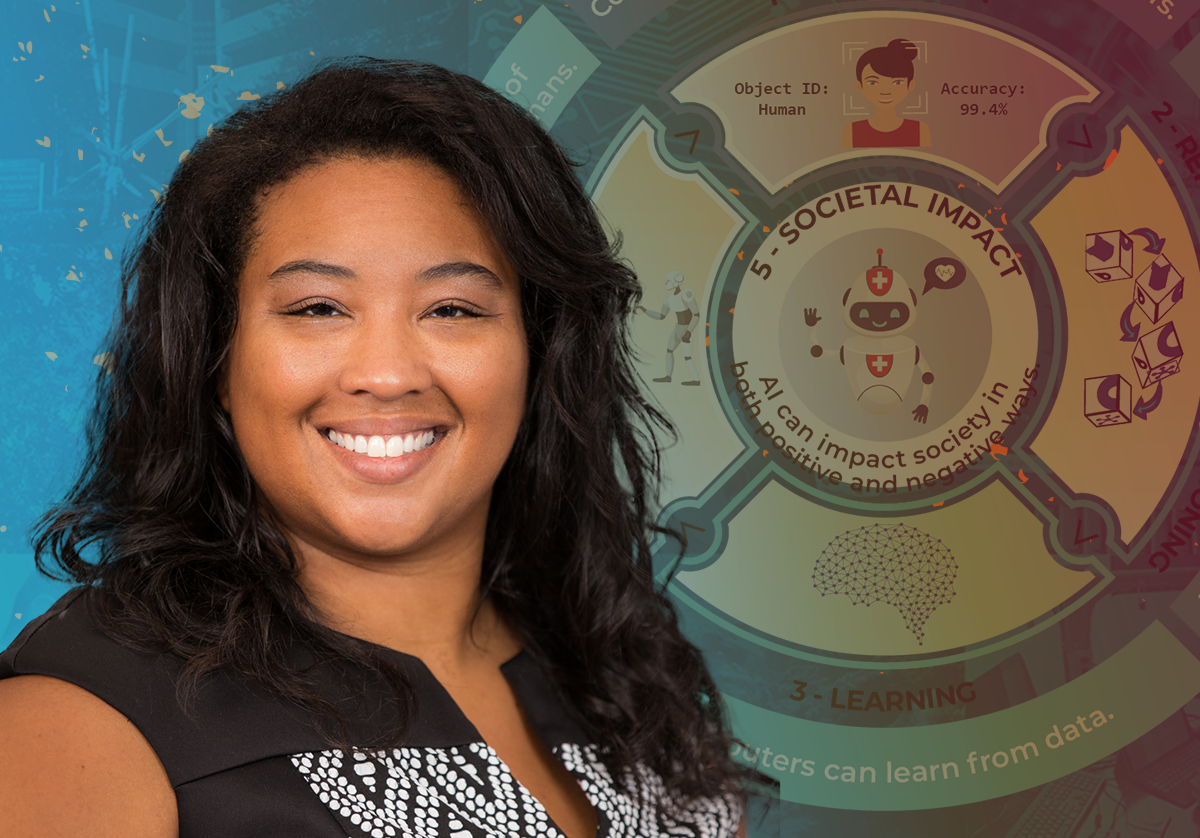A two-day virtual workshop in late January organized by the AI4K12 Initiative helped education leaders from across the country create new K-12 artificial intelligence (AI) efforts in several states. The workshop sessions were co-facilitated by Christina Gardner-McCune, Ph.D., an associate professor in the University of Florida Department of Computer & Information Science & Engineering, and Leigh Ann DeLyser, the executive director of CSforALL, an organization committed to expanding K-12 computer science education.
Leaders in computer science education from 27 states and three districts/territories met January 28 to January 29 to develop plans for introducing AI into their curricula. Participants included officials from state education departments, school district representatives, practicing K-12 teachers, university researchers, and staff from educational nonprofit organizations.
“Most K-12 teachers aren’t yet familiar with AI and are eager to learn about it themselves,” said Dr. Gardner-McCune. “As they become comfortable with the AI through new professional development opportunities resulting from their state’s planning activities at the workshop, they’ll be better able to introduce AI to their students.”
The workshop provided participants with opportunities for collaborative visioning, self-assessment, and goal setting. It sparked new initiatives in several states. Some are already updating their computing education standards to include AI, creating new AI courses, and providing opportunities for teachers to become AI-fluent.
AI4K12 is developing national guidelines for teaching AI in elementary and secondary schools as a joint project of the Association for the Advancement of Artificial Intelligence (AAAI) and the Computer Science Teachers Association (CSTA), with funding from the National Science Foundation (NSF). Dr. Gardner-McCune leads the initiative along with David Touretzky, Ph.D., from Carnegie Mellon University and Deborah Seehorn of the CSTA.
Dr. Gardner-McCune will also be collaborating with Dr. Touretzky and Bryan Cox, from the Georgia Department of Education, on another NSF project titled, “AI4GA – Developing Artificial Intelligence Competencies, Career Awareness, and Interest in Georgia Middle School Teachers and Students.” AI4GA (pronounced AI for Georgia) provides a model for states and districts to expand access to AI education in K-12 Schools. The project will investigate which instructional strategies are most likely to engage diverse student populations in AI and how to develop teachers’ AI fluency and confidence.
Researchers will develop and test a nine-week elective course for Georgia middle school students called Living and Working with Artificial Intelligence, and an accompanying online teacher professional development course. About 1,800 students will take the course, and 18 teachers drawn from 6 school districts will receive training in AI and culturally responsive instruction.
The student course will offer a mixture of activities including hands-on demonstrations, guided experimentation, online research, project-based learning, and exploration of AI-enabled careers. Teachers will also have the option of including computer programming activities. To ensure that the curriculum is adaptable, researchers will partner with school districts serving three ethnically and geographically diverse populations in Georgia. Both courses will be developed in collaboration with a team of middle school teachers and provide professional learning in the basics of AI and in culturally responsive teaching. After three years, the professional development course will be made publicly available through the Georgia Department of Education web portal.
“As our society’s use of artificial intelligence increases, the roles it plays, and can play, can sometimes be invisible,” Dr. Gardner-McCune said. “Our goals with the AI4K12 Initiative and the AI4GA project are to increase students’ awareness of how AI is used in their everyday lives and increase their knowledge of how AI works. Most importantly, we aim to empower students to responsibly use and evaluate AI and to solve problems that are important to them.”

